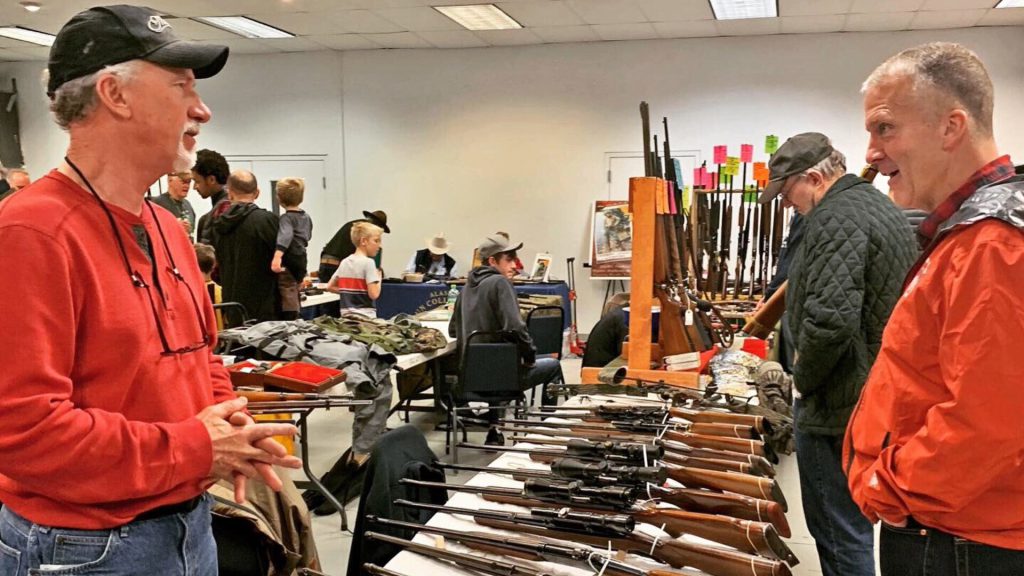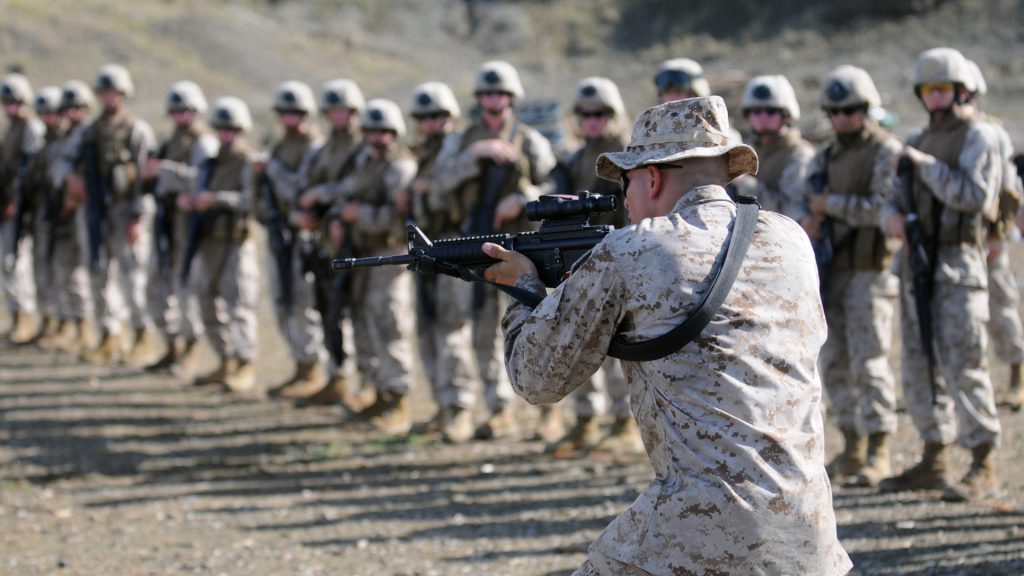Gun rights are a controversial issue in America. The United States is the only developed nation in the world with the right to bear arms enshrined in the federal constitution, and the implications of that have led to significant friction among anti-gun advocates and Second Amendment absolutists, in pursuit of pushing their agenda when it comes to guns.
Multiple Controversial American Issues
Gun rights are much like any other controversial issue in America, such as abortion or the federal legalization of marijuana. There are those who feel strongly in support of the issue, and those who are dead set against anything to do with it.

Because of the Second Amendment and the structure of the United States federal versus state law arrangement, this deep polarization around guns has led to a confusing patchwork of laws across the country around the issue.
A Patchwork of Gun Laws
Simply, this means that in some states, there are much stricter gun laws for residents than there are in other states. Some conservative states have gone so far as to remove almost all restrictions around firearms, a move that has been viewed as incredibly controversial even by residents of those states.

Other, more liberal states have gone the opposite way, putting in further restrictions around guns. This has been done in response to the steady rise of gun violence in America, which anti-gun advocates have blamed on the easy access to guns in various locales.
Examples from Other Countries
Support for this idea is found in other first-world countries, these advocates say. Countries like Britain, Scotland, and Australia have all, essentially, banned guns outright for the general populace in response to various events of gun violence.

Advocates for stronger gun restrictions point out that these countries don’t have the same levels of gun violence as America in response to these bans. In fact, Australia – since banning firearms for the general public after a mass shooting in 1996 that killed 35 people – has seen zero mass shootings in the country since their radical gun reform in the nineties.
Second Amendment Preventing Widespread Bans
Advocates for stronger gun laws have pointed to this evidence as the reason that America should institute these types of ban as well. Unfortunately, the Second Amendment creates a snag with the sorts of wide bans that these advocates are looking for, which no other country has to contend with.

And indeed, the Second Amendment has created issues with attempting to create any sort of gun reform whatsoever. Many states that have tried to implement stronger gun restrictions have found themselves under fire from Second Amendment absolutists and the National Rifle Association (NRA), who claim that any sort of reasonable gun laws are an infringement on their Second Amendment rights.
States with Strong Gun Laws
That hasn’t stopped many states with staunch anti-gun movements from attempting to implement as strong of restrictions as the Second Amendment will allow. States like California have implemented strong laws around who is and is not allowed to buy guns, regulations on ghost guns, and open carry rules for gun owners.

Other states like Washington have gone even further. Not only are laws around who is able to own a gun strict as well, but the types of guns that are allowed to be owned are heavily regulated as well. Washington was one of the first states to implement an outright ban on the sale of assault-style rifles, a law that passed in 2023 with wide public support.
Laws Challenged in Court
Many of these measures have been challenged by lawsuits, of course. This doesn’t change the fact that many of these measures are highly popular, even with gun owners and advocates, and many Second Amendment absolutist politicians have blatantly ignored their constituents who are asking for stronger gun restrictions to prevent deaths.

Gun rights organizations and advocates are hard workers, though. Recently, another gun control law was challenged in court in the state of Oregon, and the decision finally came down, striking the law from the record as a violation of the Second Amendment.
Passing Measure 114
In pursuit of stricter gun laws in the state, in 2022, Oregonians passed measure 114. The new law meant that individuals would have to get a permit to purchase firearms and must provide photo ID, fingerprints, safety training, criminal background checks, and fee payments in order to obtain the permit.

As a further measure in measure 114, the sale of magazines was banned altogether. This meant that the manufacturing, importing, purchasing, selling, possessing, using, or transferring of ammunition magazines that could hold ten or more rounds would be illegal.
Trying to Keep Guns Out of the Wrong Hands
One of the primary motivations behind passing measure 114 was the drive to ensure that guns don’t end up in the wrong hands. This could be for nefarious purposes such as trying to commit crimes, or something tragic like attempting to hurt oneself.

The vote was deeply split, with 50.65% of voters supporting the ban. This is common in gun control laws; oftentimes, when gun control measures pass, it’s by the slimmest of margins. And in this case, due to the large vote split, those who opposed the implementation of 114 took the matter to court, challenging the rule under Second Amendment rights.
Multiple Lawsuits Filed
Multiple lawsuits were filed against the measure, taking them to court by various different organizations. One lawsuit found in favor of the gun control advocates, allowing the measure to stay on the books. However, this is not the case for another lawsuit that was filed.

Both the lawsuits that were filed against measure 114 were evaluated without a jury to hear the arguments of advocates and opponents alike. This is called a bench trial, which is often more efficient than a jury trial for lawsuits. However, it can also significantly impact the outcome, since only one person’s opinion and knowledge of the law is taken into account for the decision.
Challenged by Gun Owners
The second case, Arnold v. Kotek, came from two gun owners, Joseph Arnold and Cliff Asmussen. They filed the lawsuit after measure 114 was passed, believing that their right to own guns was being infringed upon due to the requirement of a permit to keep the guns that they had already purchased.

Judge Robert Rascio was the judge who was ultimately assigned the case. Particularly in regards to the measure which banned high capacity magazines, he said outright that he wouldn’t be factoring in the deadliness of high capacity magazines into his decision. Rather, he would explicitly be looking at the law and how it did or did not affect constituent’s Second Amendment rights.
An “Undue Burden” of a Law
This is important to understand, given that advocates for gun restrictions often use the argument of the deadliness of firearms to help push through their gun control measures.

Ultimately, the judge ruled that measure 114 places an “undue burden” on gun owners, ruling against the constitutionality of the law. This is in spite of the fact that, while the Second Amendment grants the right to own firearms by everyday Americans, it says nothing about the idea that owning a gun must be easy or without burden.
Appealing the Ruling
The judge’s ruling put the measure on hold, where it was meant to go into effect at the end of 2022. Since then, an appeal has been filed by the state and the gun control organizations who supported the measure, asking the courts to reinstate the measure in support of the majority’s will.

The appeal is currently pending in the courts, and a motion from the state to have the matter expedited was recently denied. However, the appellate court agreed to move more quickly on the appeal of the original decision, giving each side 119 days from the decision to submit all filings for the matter.
Federal Legislation is Necessary
The question of the constitutionality of gun control measures is one that both state and federal governments have continued to grapple with in recent years. Act of gun violence such as the Sandy Hook shooting and the Pulse Nightclub Massacre have continually raised the issue in the public eye, and politicians, unfortunately, don’t seem to be able to come to a consensus regarding the matter.

Unless the Second Amendment is repealed in Congress, it seems like that these issues will continue to be discussed. Widespread federal legislation on guns is the only way to stop the patchwork measures around gun laws that are an issue from state to state, and that is something that is unlikely to happen, particularly with today’s deeply divided Congress.






